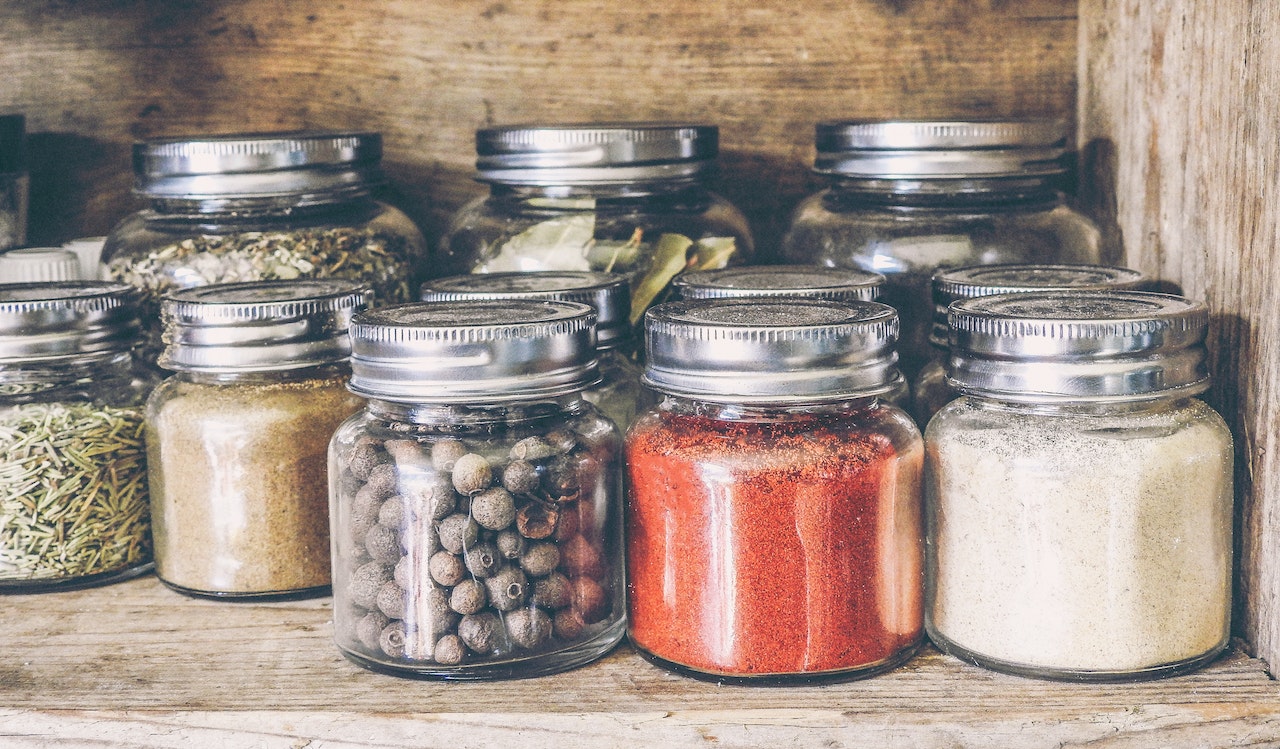
Whether you’re just starting or have been cooking for a while, you might wonder what the difference is between spices and seasonings.
Knowing the distinctions between spices and seasonings enables you to flavor any dish you prepare with the proper ingredient. To distinguish their differences, you need to understand their essential components.
A spice is a by-product of the plant used to flavor food and has an aromatic or spicy flavor.
Fruit, seed, bark, roots, and other plant components make spices. They are primarily used to improve the taste, aroma, and color of your food.
Additionally, each spice has a unique nutritional value and is utilized in producing perfume, cosmetics, and cologne. These are typically vegan-friendly because no animals are harmed in their production.
Compared to whole spices, herbs and ground spices are much less effective at retaining flavor and potency. Cloves, allspice berries, and cinnamon sticks are a few examples of whole spices that aren’t crushed or ground.
A spice’s surface area increases, and it is exposed to oxygen when it is ground. Herbs that have been ground release volatile oils that cause the material exposed to air to degrade and lose potency much more quickly.
It is best to buy whole spices, store them properly away from these elements, and grind them right before using them to avoid heat, light, and air damage.
Seasonings, primarily made up of spices and herbs, can also include salt, sugar, vinegar, oils, sauces, and other animal products to improve a particular food’s flavor, aroma, color, and texture.
The majority of seasoning blends contain salt, which is the most widely used seasoning. Additionally, salt and pepper make a lovely couple as the most well-known and fundamental seasoning: salt-pepper!
The two types of seasonings are wet and dry seasonings. Spices, herbs, salt, oils, vinegar, and sauces like soy, sriracha, and chili, among others, make up the majority of wet seasonings.
Your culinary adventures will be streamlined. Additionally, since you frequently use different food additives in your cooking, we thought defining the difference between spices and condiments would be beneficial.
Both the dish itself and your cooking style have a significant impact on how you season a dish. Some grill masters only use salt and pepper to season steaks because they think the flavor of the meat will be sufficient.
Others will season the steak with garlic powder and onion powder. Melted butter is added to the dish after the steak has finished cooking to add fat and improve flavor.
Adding spice and seasonings to your dish is a great way to make it richer in flavor. There are various spices and seasonings to choose from, so you can find the perfect ones to enhance the flavor of your dish.
There are several critical differences between spices and seasonings. Spices are typically dried and ground plant materials. At the same time, seasonings can be either dry or wet and include various ingredients such as herbs, spices, salt, pepper, sugar, and vinegar.
Seasonings are also generally used in smaller quantities than spices. When it comes to cooking, spices are added during the cooking process, while seasonings are added at the end of cooking or just before serving to enhance flavor.
Whatever differences they have, it’s undeniable that they are both essential in cooking your favorite foods. This is why you need only the best of the best when picking your ingredients.
If you need fresh seasonings and spices for your dishes, Castle Foods should be your go-to! We are an importer, processor, and purveyor of spices, capsicums, herbs, and aromatics. Each of our products can be traced back to the farm and field where it was grown, which we frequently visit to ensure that you receive only the finest herbs and spices. Get yours now!
SIGN UP FOR OUR NEWSLETTER!

CASTLE FOODS LLC
855 B RAHWAY AVENUE
UNION, NJ 07083